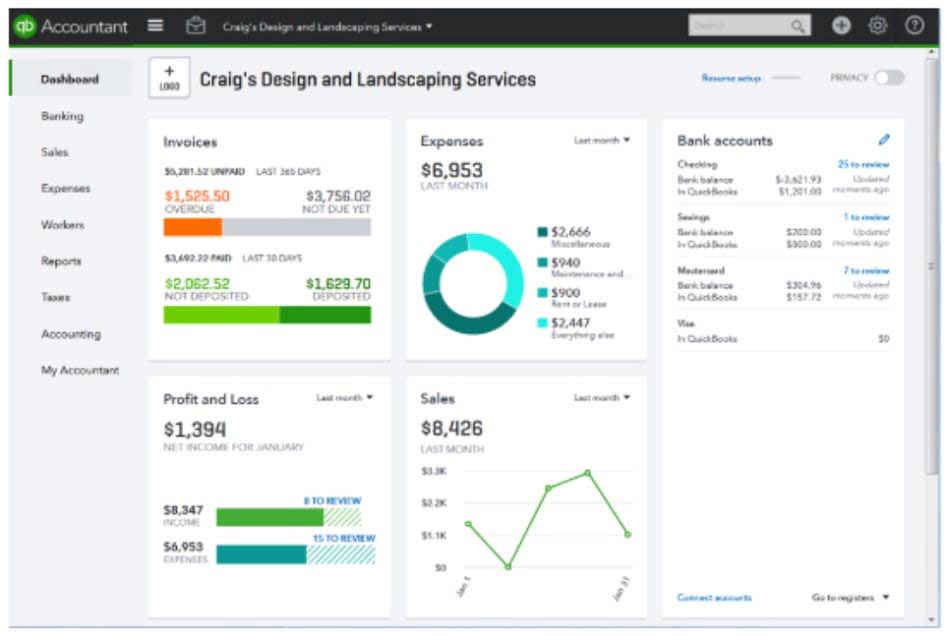A chartered accountant may be best able to manage taxes and government compliance with certain rules and regulations. ACCA certification is important when hiring an accountant who offers business accounting services. Business accounting is integral to the operation of small- and medium-sized businesses. bookkeeping and payroll services This type of accounting manages a company’s daily financial activity while setting long-term financial goals.
- If you are good at math and have an eye for detail, bookkeeping is not too hard to learn.
- Bookkeepers are responsible for creating and maintaining essential financial documents that record day-to-day transactions.
- Other common options include the Certified Management Accountant (CMA) or Chartered Global Management Accountant (CGMA) designations.
- Outsourced bookkeeping and payroll services can provide expertise and knowledge that may not be available in-house.
- Traditionally, bookkeeping was done manually using ledgers or journals, requiring meticulous attention to detail and mathematical accuracy.
- They look at all of the financial details of a company so they can make larger decisions about how the business operates.
Nội dung chính
Common Types of Accrued Expenses
Bookkeepers don’t need a special certification, but a good bookkeeper is important for an accountant to have accurate financial records. Properly identifying and recording these types of accrued expenses is crucial for ensuring the accuracy of a company’s financial statements and compliance with GAAP. Accounting software can help a business manage finances more efficiently, prepare for tax filing, and provide a clearer sense of the company’s financial health and needs.
Financial analysis and reporting
- Accountants also generate reports for budgeting, forecasting, and complying with financial regulations.
- The tax forms filed by a small business will depend on whether it is a registered company, charity, or community interest company and whether it is VAT registered.
- They take this skill set with them to gain a firm understanding of how financial monitoring works.
- Small business accounting software like QuickBooks helps you track your business finances all in one place, making it easily accessible to you and your accounting team.
- In order to become a CPA, an accountant must pass the Uniform Certified Public Accountant exam and possess experience as a professional accountant.
They prepare financial statements like balance sheets, income statements, and cash flow statements. Accountants also generate reports for budgeting, forecasting, and complying with financial regulations. These documents offer insights into the company’s overall financial health and aid in strategic planning.
What you should look for in payroll software for accountants.
Ensuring efficient and effective bookkeeping and payroll practices within your business will allow you to make informed strategic decisions and business goals. As we reach the conclusion of our journey through the intricacies of accounting, payroll, and bookkeeping, it’s essential to reflect on the key insights gained and their significance for businesses of all sizes. In this final section, let’s recap the main takeaways and discuss how mastering financial management can pave the way for success in today’s dynamic business landscape. On the other hand, larger enterprises may opt to invest in robust accounting software and hire dedicated financial professionals to manage their financial affairs internally. Platforms like QuickBooks or SAP offer advanced features and customization options that cater to the complex needs of larger organizations.
Bookkeepers must have excellent attention to detail when handling thousands of financial transactions. Accountants are money-related advisors who create fiscal summaries and provide monetary exhortations. They should prepare tax returns and pay taxes in full accordance Grocery Store Accounting with the law. Accountants check what they do to help the business survive, evaluate operations problems, and create upper-hand solutions, all aimed at saving cash in their capacity as controllers. The difference between bookkeeping and accounting can be well understood by viewing the tasks of both.
In short, bookkeeping involves maintaining a financial diary, and accounting involves analyzing that diary to improve economic outcomes. In this day and age, the providers you contract with don’t need to be in the same city, state or even time zone as you. If you find someone who is a good fit for your business needs, it doesn’t matter if they are in California while you work from New York.
- Bookkeepers monitor the company’s cash flow, ensuring enough liquidity to cover expenses and identifying potential cash flow issues.
- For instance, investors might use them to assess the risk of investing in a company.
- Working with a bookkeeper can also help ensure your books stay clean and up to date so you’re always ready when tax season rolls around.
- A bookkeeper usually performs these steps, however, an accountant may step in to complete these tasks, or oversee them as they’re completed by the bookkeeper.
- The process includes tracking time, accounting for bonus pay, and making on-time distributions.
- As we reach the conclusion of our journey through the intricacies of accounting, payroll, and bookkeeping, it’s essential to reflect on the key insights gained and their significance for businesses of all sizes.
Is hiring both an accountant and bookkeeper necessary?
Collaboration streamlines financial operations and helps businesses stay compliant with tax and regulatory requirements. Despite the advancements in payroll technology, businesses still encounter challenges when it comes to payroll administration. One common issue is ensuring compliance with ever-changing tax laws and regulations, which can be bookkeeping daunting for businesses of all sizes. From federal tax withholding requirements to state-specific regulations, staying abreast of compliance updates is essential to avoid costly penalties and audits.
Hire an Accountant When:
In contrast, the financial accounting process is more about analyzing those transactions, ultimately providing business insights. Although bookkeeping and payroll services are essential for businesses, they differ from one another in terms of their scope and focus. Enterprises should consider their specific needs, budget, and resources when deciding whether or not to outsource these services. Ultimately payroll services for small businesses can streamline their operations, reduce costs, and focus on their core competencies. Outsourced bookkeeping services involve managing financial transactions, such as recording expenses and revenues, reconciling bank statements, and generating financial reports.





